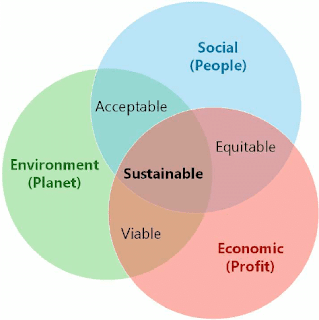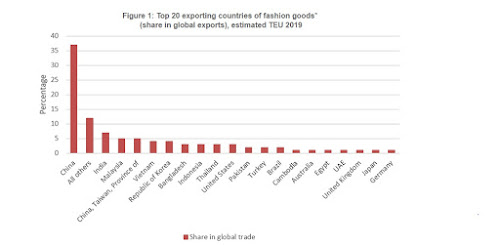Day by day the consumer choice of textile-clothing is changing with the changes in fashion trends. Traditional textile & clothing is now being widely used in various fields including modern fashion, smart textiles, medical applications, space applications and so on. Textiles are not confined only to traditional clothing nor to basic manufacturing processes. This development is the result of ceaseless researches on textile home & abroad. Rigorous researches are still underway to ensure a more modern use of textiles. The Bangladesh University of Textiles (in short BUTEX) is one of the renowned textile-based universities in south Asia.
Currently, there are ten (10) degree-awarding textile engineering departments at BUTEX along with some other degree non-awarding basic science departments like Physics, Chemistry, Mathematics, Humanities & Social Science etc.
- Yarn Engineering
- Fabric Engineering
- Wet Processing Engineering
- Apparel Engineering
- Textile Engineering Management
- Textile Fashion & Design
- Industrial & Production Engineering
- Textile Machinery Design & Maintenance
- Dyes & Chemicals Engineering
- Environmental Science & Engineering
Currently, BUTEX is offering B.Sc. in Textile Engineering, M.Sc. in Textile Engineering and MBA in Textile degrees. PhD enrollment has not yet been started at BUTEX due to sufficient faculties though having all kinds of laboratory facilities. In fact, BUTEX has just crossed its infant age as it has been established on 22 December 2010 as the public university. Before emerging as a public university it was a Govt. textile college namely College of Textile Engineering & Technology with a glorious past.
There are some (seven textile college so far updated in the BUTEX official website) affiliated textile engineering colleges with BUTEX maintaining the same course curriculum and offering the same B.Sc. in Textile Engineering degree under BUTEX. In addition to BUTEX, Dhaka University of Engineering & Technology (DUET), Khulna University of Engineering & Technology (KUET) and Mawlana Bhashani Science & Technology University (MBSTU) are offering Textile Engineering degrees simultaneously.
For research M.Sc. and PhD, textile graduates usually are going to USA, UK, Japan, Australia, Turkey, Canada, Malaysia, South Korea, China, Germany and so on. At present, tremendous research activities are underway across the whole world. Textile-based research refers to working mainly on materials (i.e. fibre, yarn, fabric etc.), polymer chemistry (i.e. wet processing, washing, dyes & chemicals etc.).
On top of that, some contemporary researches are also being carried on consumer behaviour, fashion design, fashion retailing, sustainable fashion, textile marketing & merchandising etc. though there are a few funding scopes for these fields. Textile higher studies with funding are absolutely too much competitive now. Because textile graduates should do their higher studies in either material science (nanomaterials, nanocomposites, acoustic textiles, graphene, carbon nanotubes, nanomembrane etc.) or in polymer chemistry (dyes & chemicals, anti-bacterial properties of textiles, ultrasonic-bioscouring, flame retardant properties of textiles etc.)
On top of that, some contemporary researches are also being carried on consumer behaviour, fashion design, fashion retailing, sustainable fashion, textile marketing & merchandising etc. though there are a few funding scopes for these fields. Textile higher studies with funding are absolutely too much competitive now. Because textile graduates should do their higher studies in either material science (nanomaterials, nanocomposites, acoustic textiles, graphene, carbon nanotubes, nanomembrane etc.) or in polymer chemistry (dyes & chemicals, anti-bacterial properties of textiles, ultrasonic-bioscouring, flame retardant properties of textiles etc.)
So it seems it is the tougher race for textile graduates and they have to compete with the graduates from some other disciplines like material science & engineering, mechanical engineering, industrial & production engineering, physics department, chemistry department to secure an M.Sc. or PhD Positions in a world-renowned university with financial aid (for details click on Higher Studies with funding). To beat others and to be successful, textile graduates should learn some soft skills and have a very good command over some applications like Matlab, Abaqus, Ansys, Originlab, Graphpad Prism, Endnote, Mendeley along with good basics on textile material properties and polymer science.
But it is true that, if you can make yourselves competent you can go anywhere. It is not necessary to work directly on textile issues. And importantly textile engineering education abroad is not the same as in Bangladesh. In this modern age, almost everything essential has been invented. So what the researchers are working on!!! Yes, they are tirelessly working on optimizing the inventions, in fact, that means they are working on how to improve the efficiency of anything already invented. They are focusing especially on the material phases or properties characterizations. So keep in touch with the recent trends and be updated.
Another very important issue is having research publications. Usually, our students are not brought up in an environment where doing publications is encouraged. However, graduates should have a certain number of research publications to cope up with the highly competitive race where thousands of competent candidates from all over the globe participate. Yet, one thing should be kept in mind, indiscriminate publications add no value to the CV (Curriculum Vitae) rather devaluate the candidates. Graduates must fix her/his research focus from the bachelor level and act accordingly if s/he wants to pursue higher studies later on. Extra-curricular activities undoubtedly help potential candidates to achieve her/his goal.
But it is true that, if you can make yourselves competent you can go anywhere. It is not necessary to work directly on textile issues. And importantly textile engineering education abroad is not the same as in Bangladesh. In this modern age, almost everything essential has been invented. So what the researchers are working on!!! Yes, they are tirelessly working on optimizing the inventions, in fact, that means they are working on how to improve the efficiency of anything already invented. They are focusing especially on the material phases or properties characterizations. So keep in touch with the recent trends and be updated.
Another very important issue is having research publications. Usually, our students are not brought up in an environment where doing publications is encouraged. However, graduates should have a certain number of research publications to cope up with the highly competitive race where thousands of competent candidates from all over the globe participate. Yet, one thing should be kept in mind, indiscriminate publications add no value to the CV (Curriculum Vitae) rather devaluate the candidates. Graduates must fix her/his research focus from the bachelor level and act accordingly if s/he wants to pursue higher studies later on. Extra-curricular activities undoubtedly help potential candidates to achieve her/his goal.
While applying for higher studies, the candidate must make a plan: where to apply, how to apply, when to apply etc. Random applications may have a little chance of bringing good results rather demoralize the candidates. Candidates should browse professors’ profile and can have an idea on the ongoing research issues. S/he should make the CV accordingly with a standard format and then can write the professor of course if the research areas are the same.
Application to the potential professor must be eye-catching; otherwise most of the time they do not reply to the email. If the potential candidates have some previous experiences like project works, publications, conference proceedings etc. on that research area, there is a huge possibility of having positive mail-back from the professors. Candidates should make some paper works like preparing a standard CV, a tentative research proposal, a statement of purpose (SOP) etc. Higher studies aspirants should make a list of the world-renowned universities along with scholarships or funding opportunities, application deadlines etc. and must act accordingly.
Application to the potential professor must be eye-catching; otherwise most of the time they do not reply to the email. If the potential candidates have some previous experiences like project works, publications, conference proceedings etc. on that research area, there is a huge possibility of having positive mail-back from the professors. Candidates should make some paper works like preparing a standard CV, a tentative research proposal, a statement of purpose (SOP) etc. Higher studies aspirants should make a list of the world-renowned universities along with scholarships or funding opportunities, application deadlines etc. and must act accordingly.
Wishing you all the very best for the endeavours onwards.
Courtesy:
Md. Syduzzaman
Assistant Professor
Department of Textile Engineering Management, BUTEX
Assistant Professor
Department of Textile Engineering Management, BUTEX
Texpedi.com
Check out these related articles:








